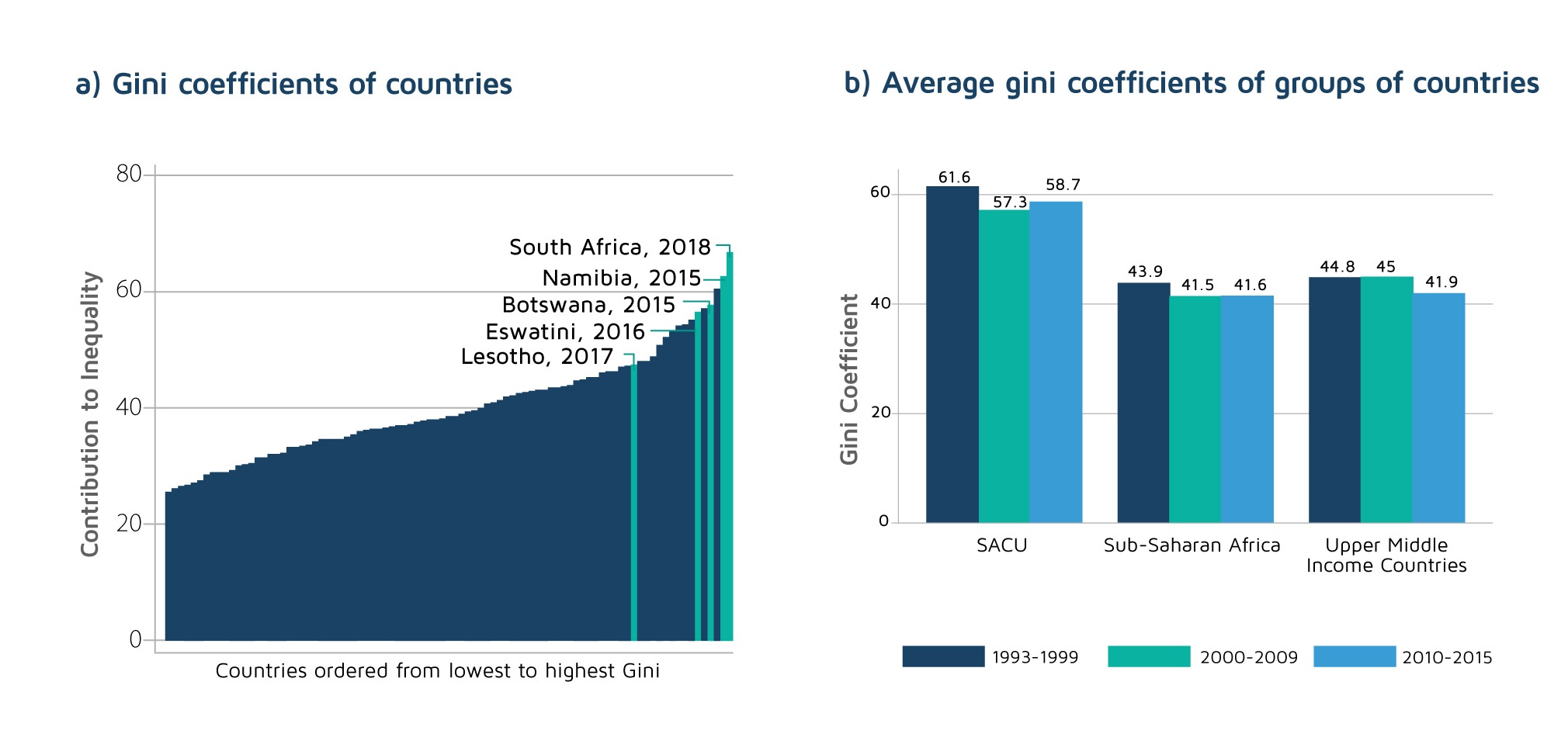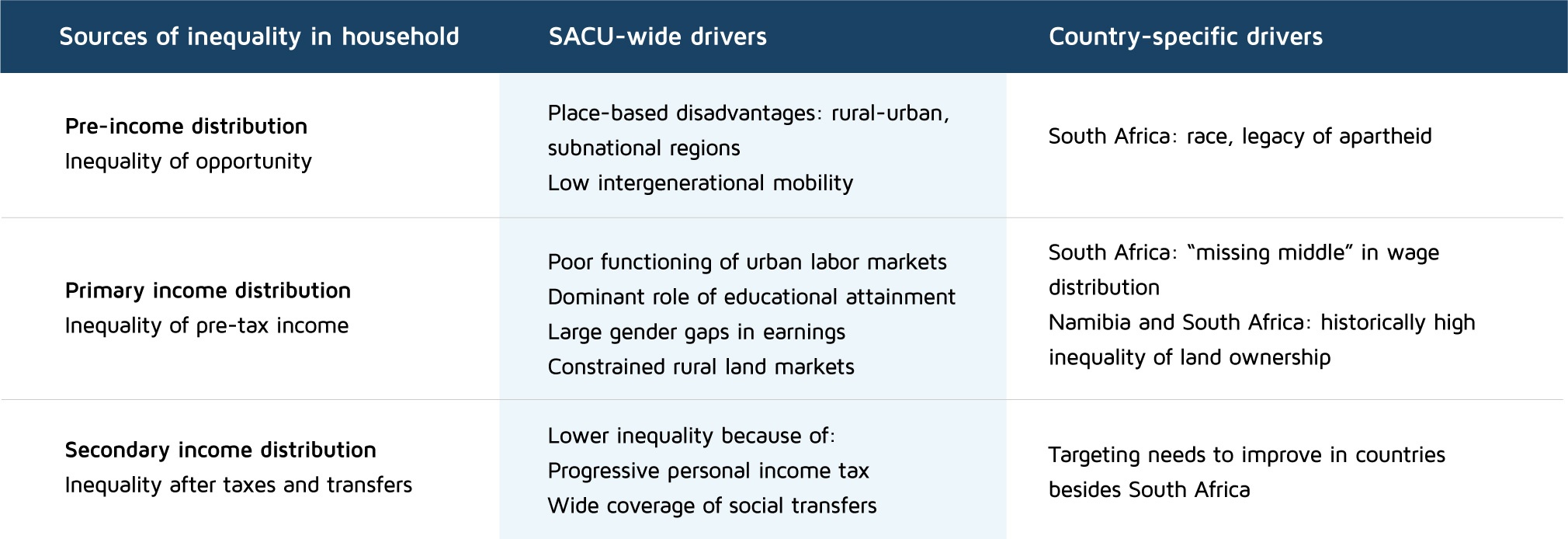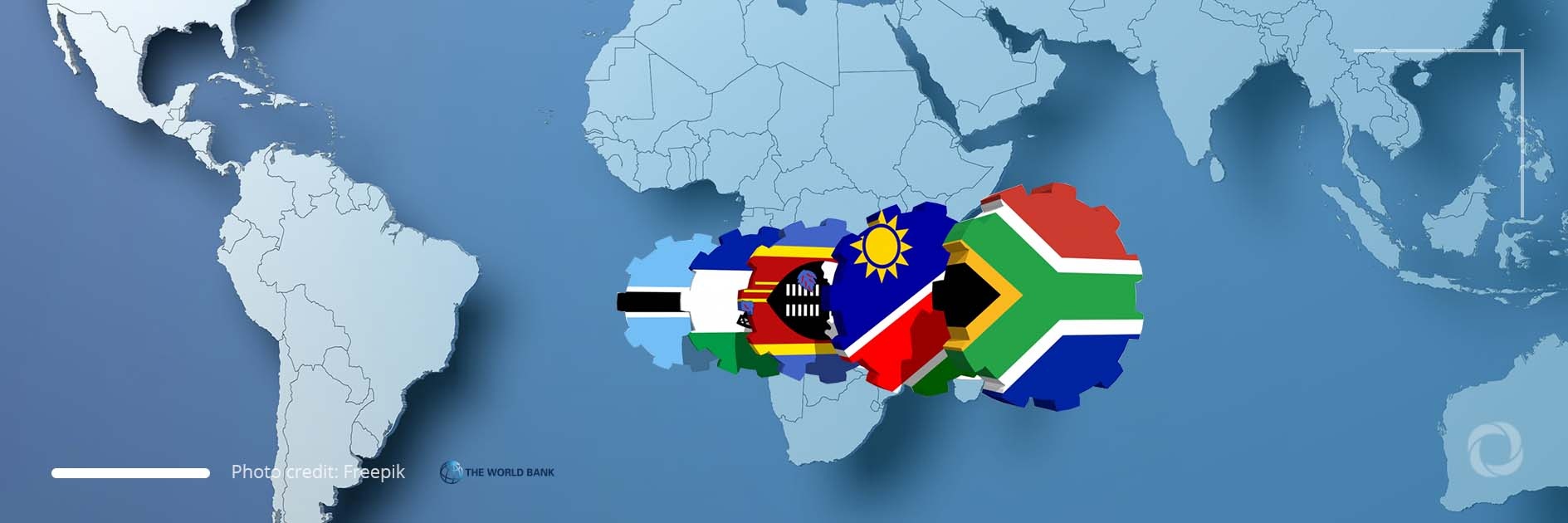South Africa, Namibia, Botswana, Eswatini, and Lesotho – all member states of the Southern African Customs Union (SACU) – are part of the world’s most unequal region according to a report by the World Bank released in March 2022. The report, entitled Inequality in Southern Africa: An Assessment of the Southern African Customs Union, shows that inequality of opportunity is a persistent driver of unequal outcomes with inequality in household wealth and low intergenerational economic mobility entrenching this.
Namibia and South Africa have higher inequalities than the other three countries, the report highlighted. Moreover, South Africa, the largest country in the SACU, is the most unequal country in the world, ranking first among 164 countries in the World Bank’s global poverty database. Thus, the top 10% of the population in South Africa hold 80.6% of financial assets, with the net wealth Gini coefficient being 76 for South Africa (Gini ranges between 0 and 1 (or 100) where 0 means perfect equality and 1 (or 100 percent) perfect inequality).

“We know from this report that inherited circumstances over which an individual has little or no control, drive overall inequality, and that despite SACU countries undertaking some of the most redistributive spending in the world, particularly on education and health, inequality remains extremely high,” said Marie Francoise Marie-Nelly, World Bank Country Director for Botswana, Eswatini, Lesotho, Namibia and South Africa. “Levelling the playing field at birth through more inclusive delivery of quality education, health and basic services is critical to reducing inequality in the region.”
In this regard, the report highlights South Africa’s progressive grants for foster care, adult and child disability, and old-age pensions. Its child grant scheme also has the largest impact on inequality, states the report. However, “such transfers are not enough to compensate for the disparities stemming from differences in wages and business incomes.”
It further cautions that high social spending does not always mean high-quality services. SACU countries fare significantly worse on the World Bank’s Human Capital Index than should be expected for their levels of development. Health outcomes among children are especially poor, with all SACU countries reporting extreme rates of chronic malnutrition or stunting among children under five.
Recent World Development Indicators data suggest that stunting has reached 27.4% in South Africa.
“Improving access and availability of private sector jobs and access to productive assets such as land will help equalize opportunities,” said Pierella Paci, World Bank Practice Manager of the Poverty and Equity Global Practice for Eastern and Southern Africa.

Building on this analysis, the report proposes four policy areas to accelerate the reduction in inequality in SACU:
- Promoting equality of opportunity: This includes strengthening access to public services and ensuring that everyone, including rural and poor people, has equal access to these services, strengthening the provision of early childhood development services, and reducing spatial inequality in access to opportunities.
- Addressing the highly skewed distribution of productive assets: Generating jobs for the growing workforce is key to reducing unemployment and inequality. This entails improving business environments by reducing the business regulations that hamper domestic and foreign investment and by strengthening competition and productivity, boosting entrepreneurship, self-employment, and small business development by removing regulatory bottlenecks, supporting business and socio-emotional skills development, and expanding access to finance; as well as developing programs to address youth unemployment along with a matching process to reduce the information gap between employers with job vacancies and potential workers with the appropriate skills for those jobs.
- Enhancing the impact of fiscal policy on inequality: Improving the equity and efficiency of social spending, improving the efficiency of social assistance by an integrated social registry with automated databases and better service delivery to address some implementation challenges, modernizing social protection systems, and improving policy coordination among ministries, better targeting of social protection programs to ensure that the benefits reach the intended beneficiaries. Technical and vocational education and training and higher education systems also need reform.
- Strengthening resilience to climate change risks and economic vulnerability: Enacting measures to mitigate and adapt to water scarcity is vital for building people’s resilience against climate shocks. This could include investments in water conservation and storage interventions, groundwater preservation and the development of new water resources as well as cost-based pricing to encourage conservation and reallocation to more productive sectors.

